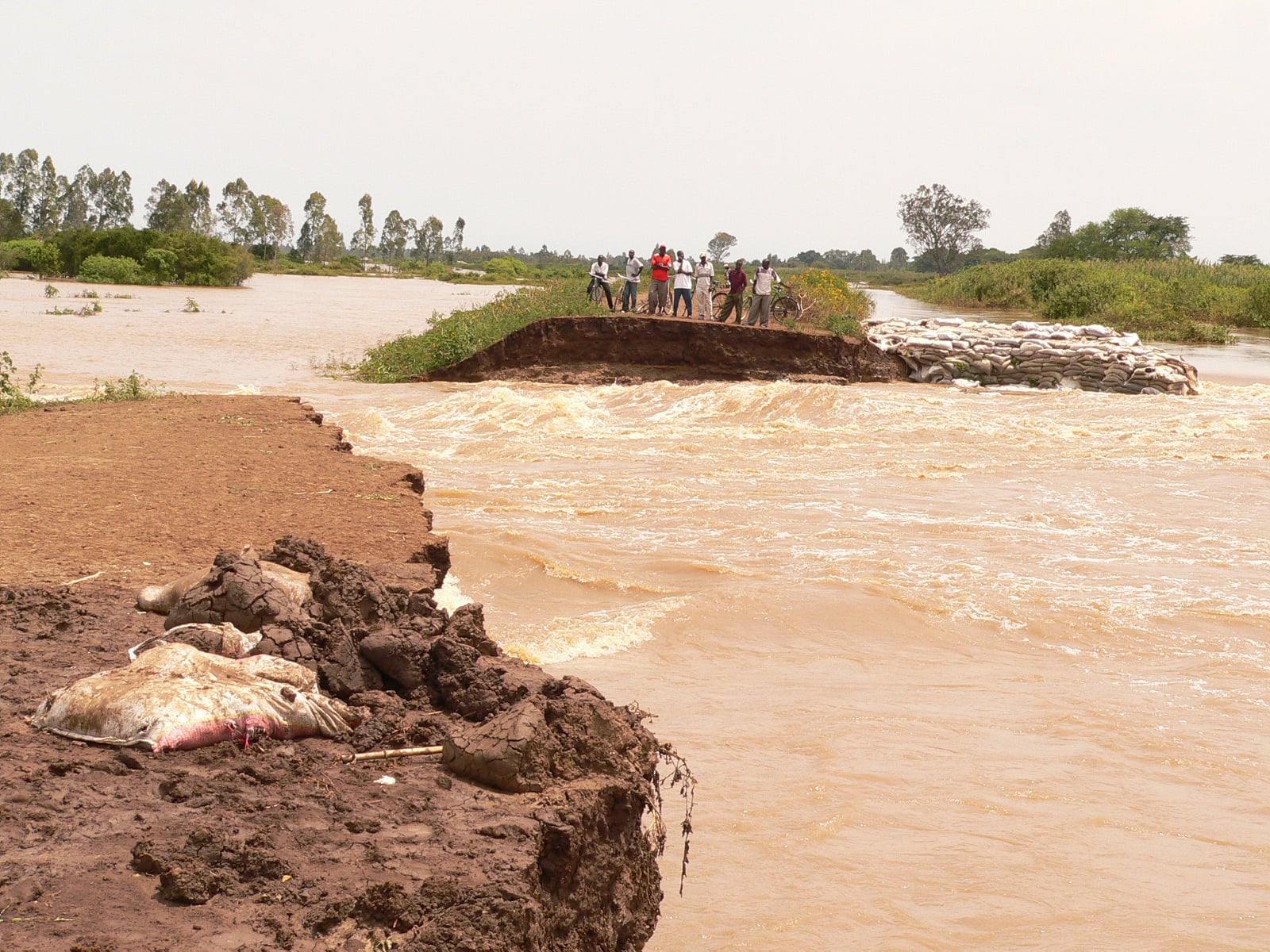The rains that have pounded several districts in eastern Uganda have eased slightly but parts of the region remain cut off and inundated by floods, aid workers said.
Water levels remained high, with roads destroyed, forcing aid agencies to resort to expensive air transportation to deliver food to communities cut off by the floods, said Kristen Knutson, public information officer at the UN Office for the Coordination of Humanitarian Affairs.
"We have secured one MI-8 helicopter and two more are expected. The helicopter is using sling-net deliveries [and] an Antonov 12 aircraft will fly relief to the region from Entebbe," Knutson told IRIN by telephone from the eastern town of Soroti.
Up to 300,000 people have been affected by the unprecedented floods, especially in Amuria, Soroti, Kumi, Katakwi and Bukedea districts, where the water has washed away bridges and roads, making access difficult.
"Crops have been destroyed and there are signs that a dry season may be [close] while two planting seasons have been lost," Knutson added. "This means that the food security of these people will remain precarious."
The UN World Food Programme (WFP) this week warned that a disaster loomed unless donors replenished its food stocks by December.
Unusually heavy rain – the worst in 35 years – has fallen in the region since July, destroying much of the first season harvest and disrupting second season planting.
The flooding has also damaged shelter, water and sanitation facilities. Many homes have collapsed, while most that remain standing have damp floors and crumbling walls due to excessive moisture. Most pit latrines have collapsed while those remaining are not safe.
According to aid workers, water points have been contaminated, thereby increasing the possibility of epidemic disease outbreaks. Many health centres in the affected areas already had little or no supply of essential drugs at the start of the emergency, while staffing levels are chronically low.
"The situation is dire for hundreds of thousands of people who have lost their homes, their belongings and most of their crops," wrote WFP executive director Josette Sheeran in a statement. "It can take just days for the effects of acute malnutrition to claim the life of a child."
WFP needs US$17 million to buy food for flood victims and $3.2 million to provide trucks, boats, aircraft and emergency road and bridge repairs on behalf of the humanitarian community.
Knutson said cases of waterborne diseases such as diarrhoea, upper respiratory diseases, as well as malaria, had increased in most areas by 30 percent.
The appeal for funds was boosted by a $6 million grant from the Central Emergency Response Fund (CERF). "The grant is in response to a $41 million Flash Appeal launched by the humanitarian community on September 21st," stated OCHA.
"These funds will be put to immediate use to benefit the many thousands who require aid to cope with the effects of the floods," said Theophane Nikyema, UN Humanitarian Coordinator for Uganda.
Meanwhile, the Food Early Warning Systems Network (FEWS Net) warned that areas of Southern Sudan could face localised food shortages due to flooding, including the Nile-Sobat and eastern flood plains.
vm/eo/mw
This article was produced by IRIN News while it was part of the United Nations Office for the Coordination of Humanitarian Affairs. Please send queries on copyright or liability to the UN. For more information: https://shop.un.org/rights-permissions
